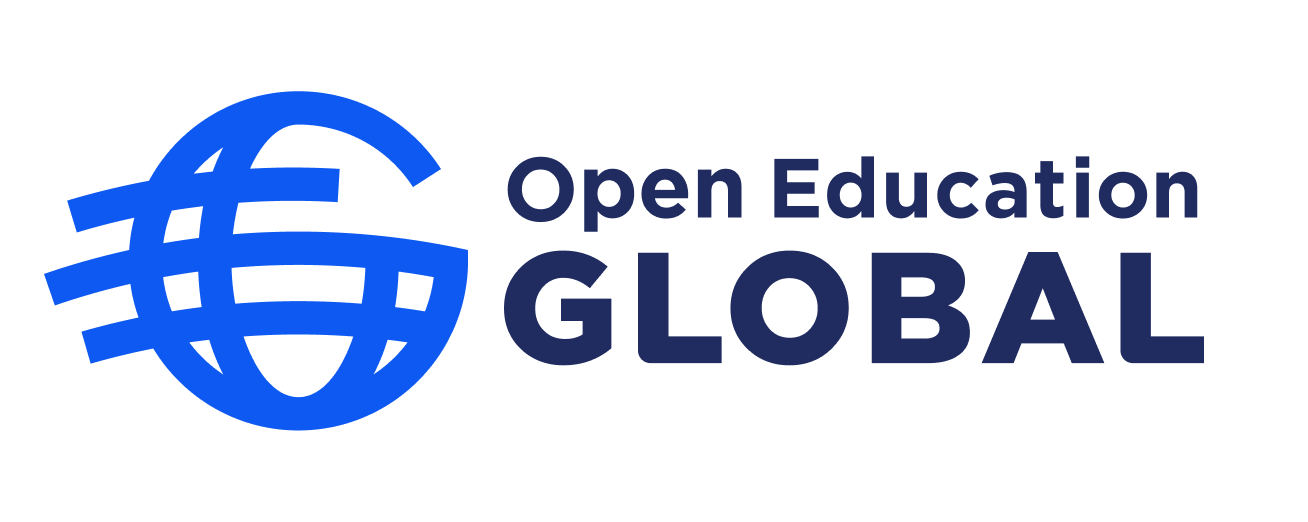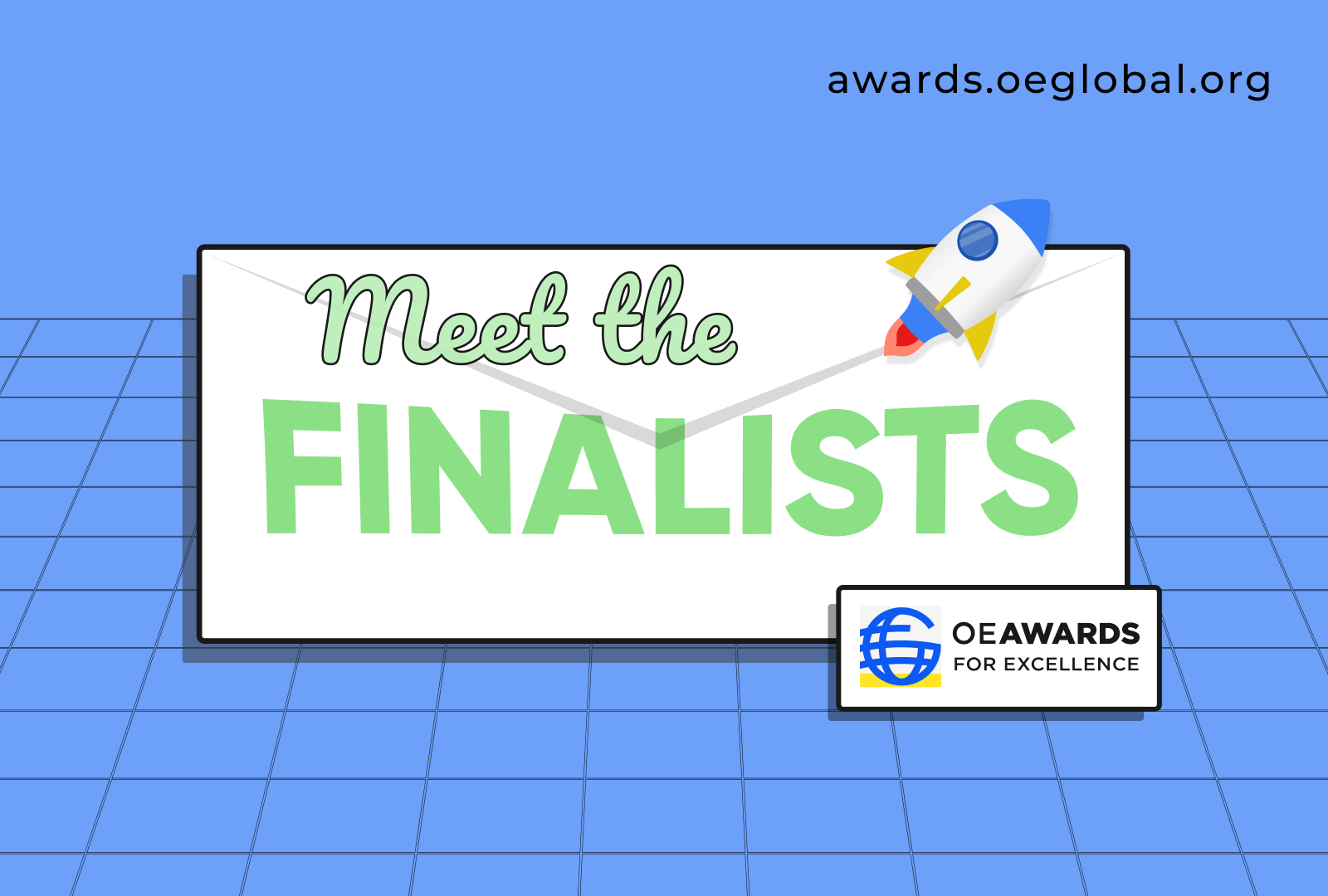This year, we’re trying something different for the #OEAwards.
Every year, the Open Education Awards for Excellence recognizes outstanding contributions in the Open Education community, recognizing exemplary leaders, distinctive Open Educational Resources, and Open Practices from around the world.
In 2022, we’re announcing the #OEAwards shortlist of finalists first. The shortlist celebrates 12 open leaders and 31 open education initiatives and practices across the 14 awards categories.
“Behind every nomination you can find a story about collaboration, enthusiasm, and creativity. The extraordinary work of the open community never ceases to amaze me. This year I’m excited to see important efforts being made to create resources and practices that are more diverse, equitable and inclusive.”
Marcela Morales, OEGlobal Director of Community Relations and OEAwards Liaison
The shortlist was selected from 89 nominations of open education excellence across 22 countries by the 12 members of the OE Awards 2022 Committee and OEGlobal Board Members.
The finalists (in alphabetical order) are …
PEOPLE IN OPEN
Leadership Award
- Delmar Larsen
- Ebba Ossiannilsson
- Robert Schuwer
Educator Award
- Saifa Haque
- Sushumnarao Tadinada
- Giovanni Zimotti
Emerging Leader Award
- Luis Clemente Jiménez Botello
- Sarah Kresh
- Andrea Scott
Support Specialist Award
- Beatriz Canales
- Ewan McAndrew
- Ellie Svoboda
WHAT WE SHARE
Best OER
- Explorations: An Open Invitation to Biological Anthropology from California State University Chico
- Liberated Learners from Trent University
- Moo MOOC: Milking your OER from University of Edinburgh
- Open RN Nursing Mental Health and Community Concepts from Chippewa Valley Technical College
- Open RN Nursing Management and Professional Concepts from Chippewa Valley Technical College
- Salón de clase: Intermediate Spanish for Education Professionals from Binghamton University – SUNY
- School for All: promoting an anti-racist education from Fundação Telefônica Vivo
- Strategic Communication to Counter Security Threats in the Disinformation Era from Universidad Rey Juan Carlos
Open Curation / Repository
- Digital Self-Learning Initiatives from Taipei Medical University
- The French Digital University from The French Digital University (l’Université Numérique)
- LibreTexts at University of California-Davis
- Open Courseware at King Khalid University (KKU)
- Repositorio de Recursos Educativos Abiertos from Ceibal
Open Reuse / Remix / Adaptation
- An ENOEL Toolkit – Benefits of OE for everyone to reuse from SPARC Europe
- Open eTextbooks for Access to Music Education from University of Edinburgh
- Open Technical Communication from Kennesaw State University
Open Infrastructure
- LibreTexts at University of California-Davis
- Open Educational Resources American Public University System from American Public University System
- TAO from Open Assessment Technologies
HOW WE SHARE
Open Collaboration
- European Network of Open Education Librarians from SPARC Europe
- The ICDE OER Advocacy Committee from Swedish Association of Distance Education
- Liberated Learners at Trent University
Open Innovation
- Innovative Sustainable Forest Management Education in the Asia-Pacific Region from the Asia Forest Research Centre, UBC Faculty of Forestry
- Textbook Transformation Project at Chaffey College
Open Pedagogy
- Evaluating OER for Social Justice at Lehman College, CUNY
- The Open Pedagogy Project Roadmap from Pennsylvania State University
- TeachOER, an online repository of OER resources and openly-licensed teaching materials from Baruch College-CUNY
SPECIAL AWARDS
Diversity, Equity & Inclusion Award
- Ewan McAndrew, Wikimedian in Residence: Wikimedia and Equality, Diversity and Inclusion at University of Edinburgh, UK
- OpenLearn’s Race and Ethnicity Hub at The Open University, UK
- Reading Wikipedia in the Classroom – Bolivia 2021-2022 from Wikimedistas de Bolivia
Open Resilience Award
- Advocacy work of the Scientific Library to advance Open Education in Ukraine from the Ukrainian State University of Science and Technologies
- TALON at the University of Calgary
The winners will be announced on October 20th. Save the date!
Read about the finalists in more detail on this page.
Join the Discussion in OEG Connect
What do you think of the shortlisted finalists? Add to the discussions below, share your experiences of these people and platforms by adding a reply in OEG Connect.


Such an exciting list of finalists!! Congratulations to everyone involved!
So excited to see the names of these amazing open education leaders and projects from around the globe, congratulations to all!
Great list of people and I am honored to be in the same list of open practitioners and advocates!